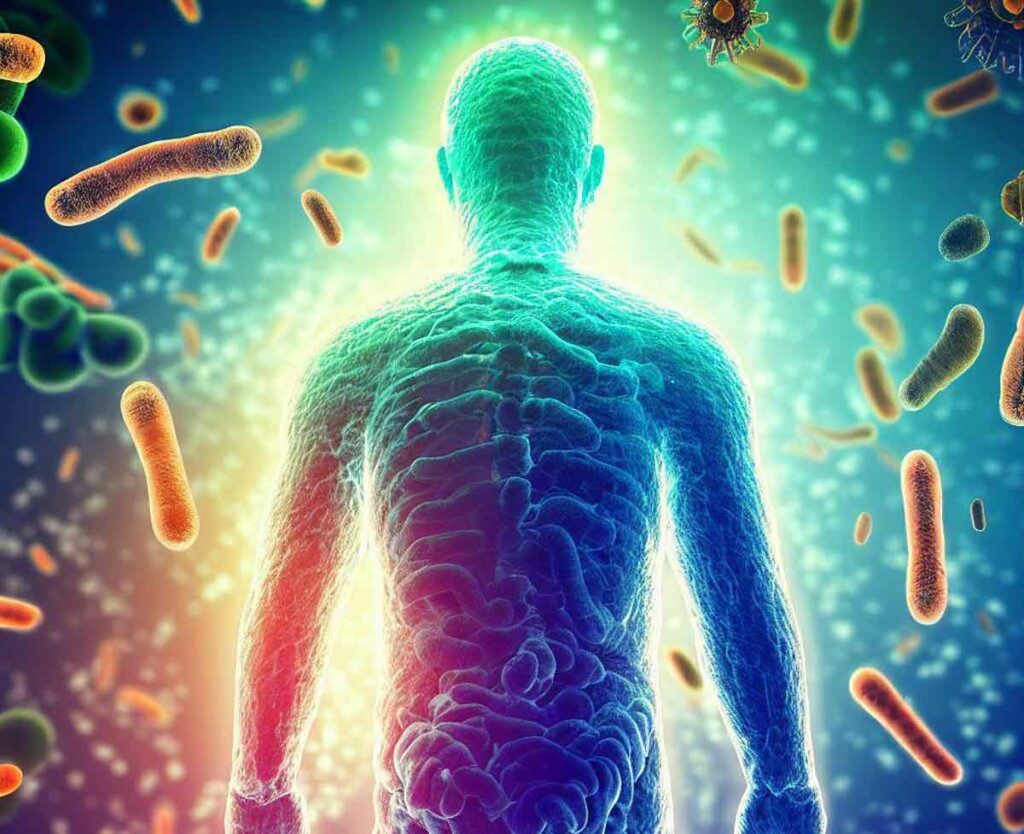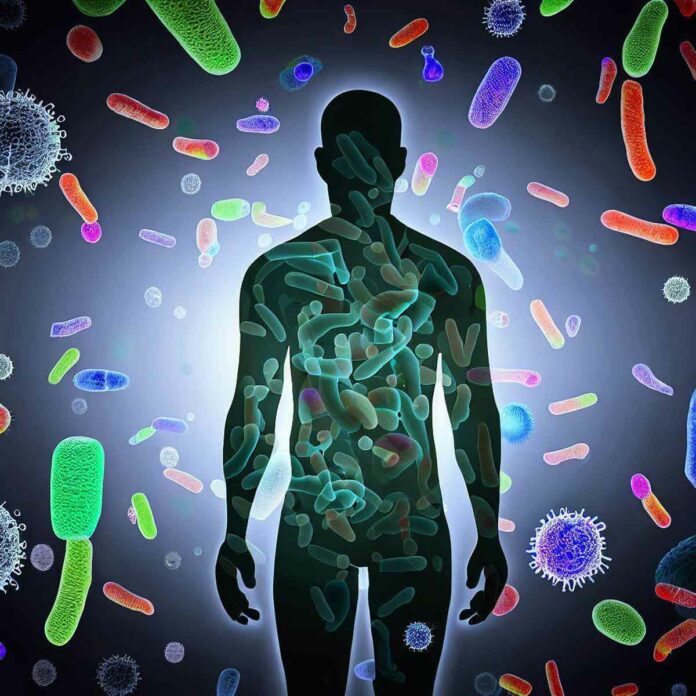Explore the secrets of the human microbiome and its impact on gut health. Discover the functions of gut bacteria, factors influencing the microbiome, and ways to maintain a healthy balance.
Uncover the latest research and future implications for personalized medicine. Get insights into the connection between the microbiome and disease prevention.
Introduction
The human body is home to trillions of microorganisms that form a complex ecosystem known as the human microbiome.
These microorganisms, including bacteria, viruses, fungi, and other microbes, reside in various parts of the body, with the largest concentration found in the gastrointestinal tract, particularly the gut.
The human microbiome plays a crucial role in maintaining overall health, influencing various bodily functions and even impacting mental well-being.
Understanding the Human Microbiome
The human microbiome refers to the collection of microorganisms that inhabit the human body.
It consists of diverse species, with bacteria being the most abundant.
These microorganisms have a symbiotic relationship with the host, carrying out essential functions and contributing to overall health.

Importance of the Human Microbiome for Overall Health
The human microbiome has a significant impact on the body’s overall health and well-being.
It aids in digestion, nutrient absorption, and the development of the immune system.
Furthermore, it plays a crucial role in maintaining a balanced mental state and influencing brain functions.
Brief Overview of Gut Bacteria and Its Role in Maintaining a Healthy Body
Gut bacteria, also known as gut flora or gut microbiota, are the microorganisms residing in the gastrointestinal tract.
They play a vital role in maintaining a healthy body by aiding in digestion, breaking down complex carbohydrates, and producing essential vitamins.
Additionally, they contribute to the development and regulation of the immune system.
Functions of Gut Bacteria
Gut bacteria perform several essential functions in the body. They help break down dietary fiber and other indigestible compounds, producing short-chain fatty acids that provide energy to the cells lining the gut.
Gut bacteria also play a crucial role in modulating the immune system, influencing the body’s response to pathogens and allergens.
Furthermore, recent research has uncovered the connection between gut bacteria and mental health, suggesting that the microbiome may impact conditions such as anxiety, depression, and stress.
The Gut Microbiome and Health
The composition and diversity of the gut microbiome have been linked to various health conditions.
Studies have shown that imbalances in gut bacteria, known as dysbiosis, may contribute to metabolic disorders such as obesity and diabetes.
Additionally, alterations in the gut microbiome have been associated with autoimmune diseases like inflammatory bowel disease and rheumatoid arthritis.
Moreover, research has highlighted a connection between the gut microbiome and allergies, with certain microbial compositions influencing the development of allergic reactions.
Factors Affecting the Human Microbiome
Several factors influence the diversity and composition of the human microbiome. One of the most significant factors is diet.
A diet rich in fiber and plant-based foods promotes a healthy gut microbiome, while a diet high in processed foods and saturated fats can negatively impact microbial diversity.
Antibiotics also play a role in altering the gut microbiome, as they can disrupt the balance of bacteria.
Additionally, stress and lifestyle factors, such as sleep patterns and physical activity, can influence the health of the gut microbiome.
Maintaining a Healthy Microbiome
Maintaining a healthy microbiome is crucial for overall well-being. One way to support the gut microbiome is through the use of probiotics, which are beneficial bacteria that can be consumed through fermented foods or supplements.
Probiotics help restore and maintain a balanced microbial community in the gut. Another way to support the microbiome is by consuming prebiotics, which are dietary fibers that nourish beneficial gut bacteria.
Lifestyle changes, including regular exercise, stress management, and adequate sleep, also contribute to a healthy gut microbiome.
Investigating the Microbiome: Research and Technology
Researchers employ various techniques to study the human microbiome. One common method is microbiome sequencing, which involves analyzing the genetic material of microorganisms in a sample.
This approach provides insights into the composition and diversity of the microbiome.
Current trends in microbiome research focus on understanding the role of the microbiome in personalized medicine, with the aim of developing targeted therapies based on an individual’s unique microbiome composition.
The Microbiome and Disease Prevention
The gut microbiome holds promise in the prevention and treatment of various diseases.
Research has revealed associations between the gut microbiome and gastrointestinal disorders, such as irritable bowel syndrome and colorectal cancer.
Manipulating the microbiome through interventions like fecal microbiota transplantation and targeted probiotic therapies shows potential for treating these conditions.
The field of microbiome-based treatments is still in its early stages, but it holds promise for the future of medicine.
Summary and Conclusion
In summary, the human microbiome is a complex ecosystem of microorganisms that plays a vital role in maintaining overall health.
Gut bacteria, in particular, have significant functions in digestion, immune system regulation, and mental health.
The composition and diversity of the gut microbiome can be influenced by various factors, including diet, antibiotics, and lifestyle.
Taking steps to support a healthy microbiome, such as consuming probiotics, prebiotics, and adopting a healthy lifestyle, can contribute to overall well-being.
Continued research and technological advancements will further our understanding of the microbiome and its potential applications in personalized medicine.
Frequently Asked Questions (FAQs)
The human microbiome refers to the collection of microorganisms that inhabit the human body, including bacteria, viruses, fungi, and other microbes.
The human microbiome plays a crucial role in digestion, nutrient absorption, immune system regulation, and even mental health.
Yes, there is evidence to suggest that the gut microbiome can influence mental health conditions such as anxiety, depression, and stress.
Factors such as diet, antibiotics, stress, and lifestyle choices can influence the diversity and composition of the human microbiome.
A diet rich in fiber and plant-based foods promotes a diverse and healthy gut microbiome, while a diet high in processed foods can negatively impact microbial diversity.
Probiotics are beneficial bacteria that can be consumed through fermented foods or supplements. They help restore and maintain a balanced gut microbiome.
While microbiome manipulation shows promise, more research is needed to understand the potential risks and long-term effects fully.
Researchers employ techniques such as microbiome sequencing to analyze the genetic material of microorganisms and study the composition and diversity of the human microbiome.
Yes, the field of personalized medicine aims to develop targeted therapies based on an individual’s unique microbiome composition.
Consuming a diet rich in fiber, probiotics, and prebiotics, managing stress levels, and adopting a healthy lifestyle with regular exercise and adequate sleep can improve gut health.
In conclusion, the human microbiome, particularly the gut microbiome, plays a crucial role in maintaining overall health. Understanding its composition, functions, and the factors that influence it is key to optimizing gut health and overall well-being. By making informed choices about diet, lifestyle, and incorporating probiotics and prebiotics, individuals can support their microbiome and promote a healthy gut. Further research and technological advancements will continue to shed light on the mysteries of the human microbiome and unlock its potential for personalized medicine and disease prevention.

